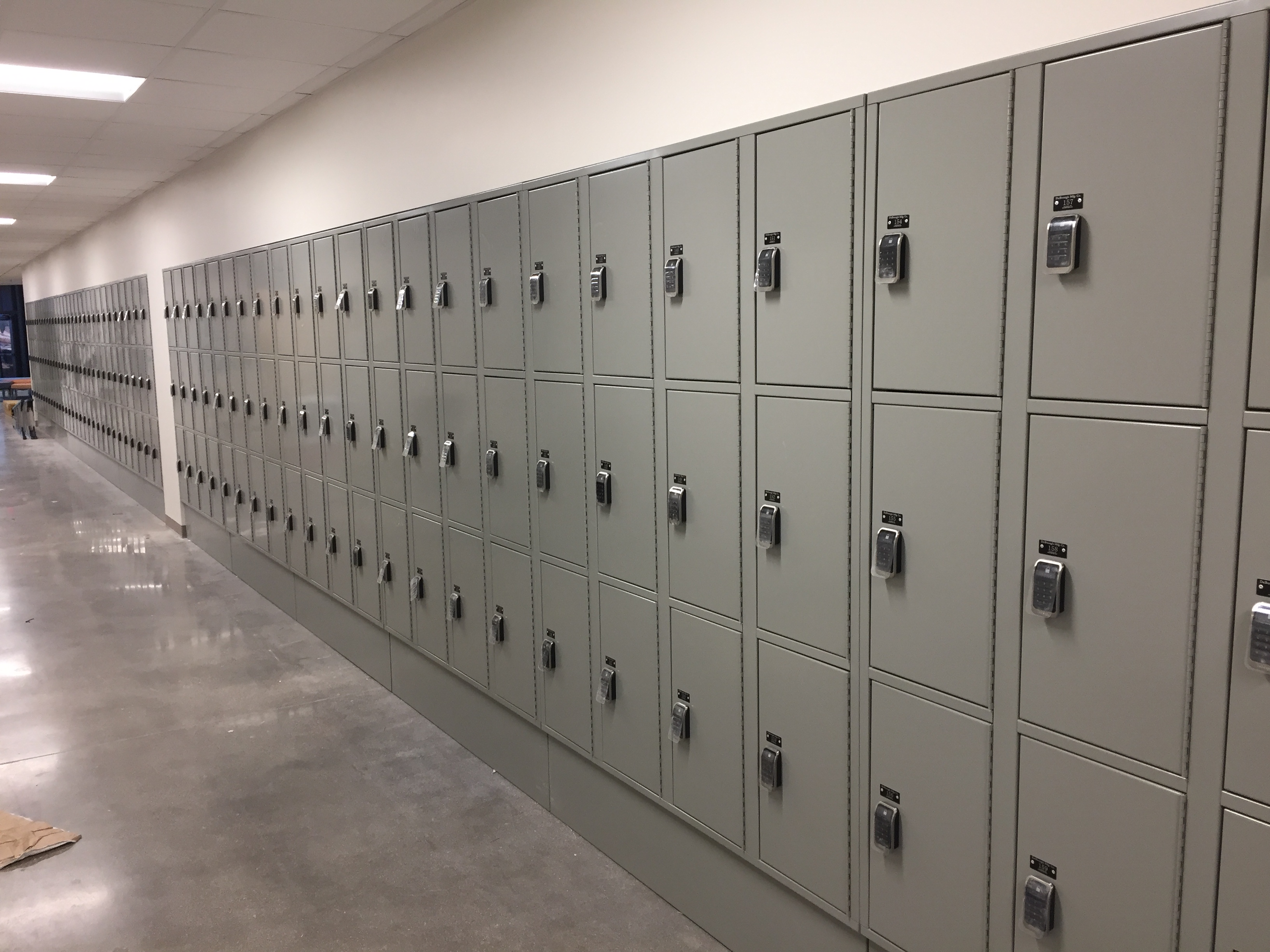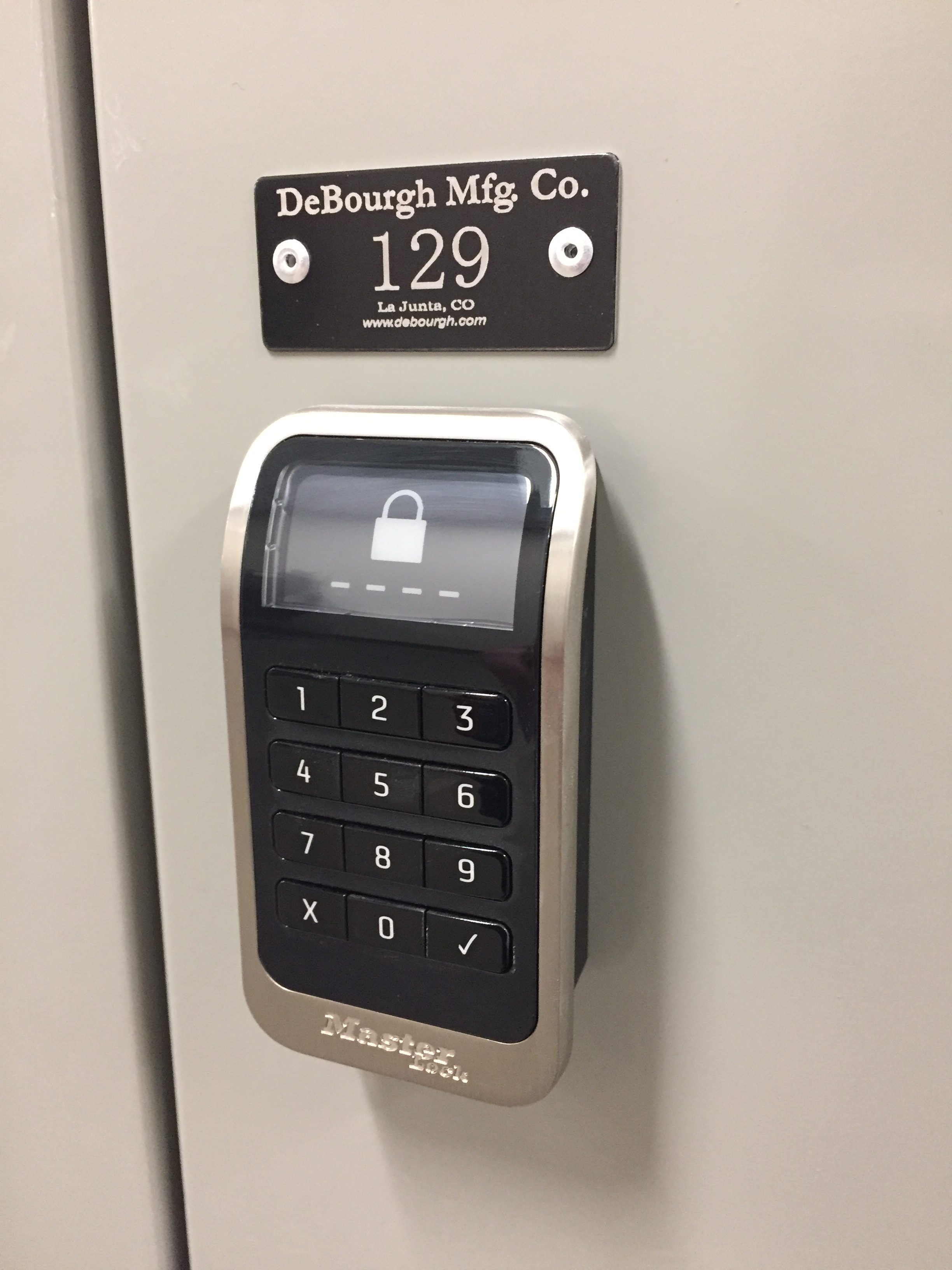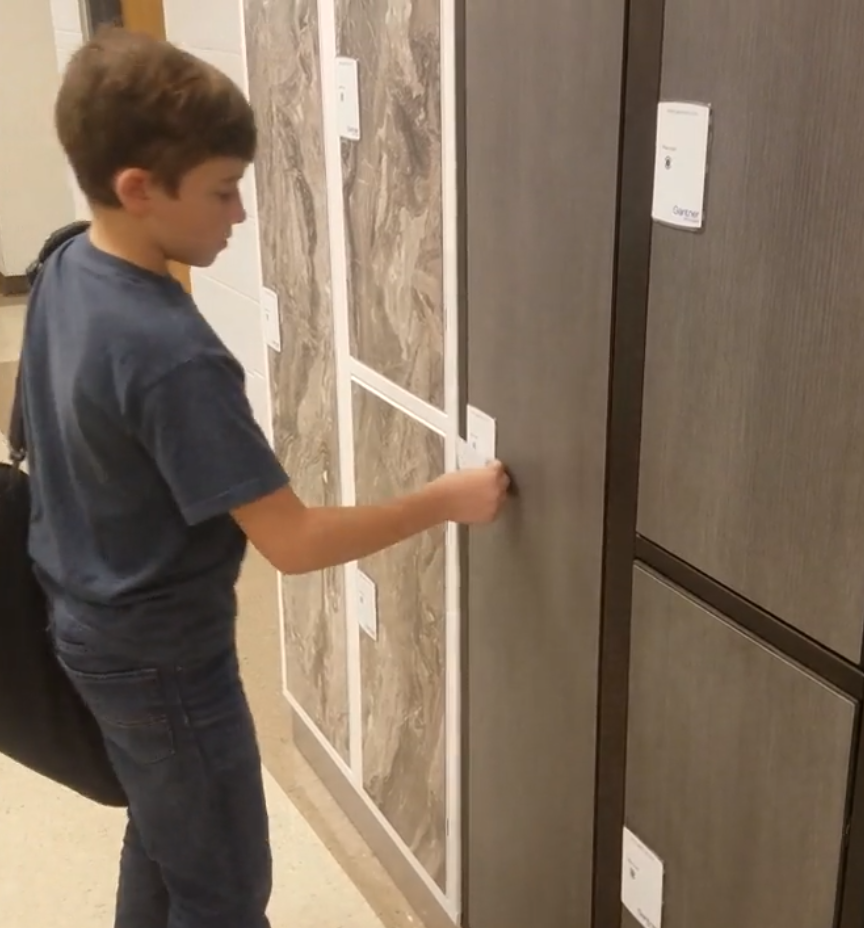Hello from Zach and Patrick of DeBourgh Lockers!
Today, we have a special guest, with whom we will be discussing a project that DeBourgh got to be a part of recently.
Lucy is an interior design project manager at Hahnfeld Hoffer Stanford—a full service architectural firm, not a law firm like it sounds. Located in Fort Worth, Texas, the firm worked on an interior design renovation for a testing center in a higher education facility. One of the primary needs was high durability testing center lockers.
What are testing center lockers and why would a university need them?

The testing center lockers are comparable to gym facility lockers, and in similar settings where users can’t bring any of their normal belongings, like a cell phone and wallet, and need a secure place to store these items. At a testing center, one single-use locker might hold dozens of people’s belongings over the course of the day depending on the facility’s needs.
Universities find themselves needing these types of lockers more and more, as many of their courses transition to taking tests in formal testing centers.
In educational settings even five to ten years ago, most students took tests in the same classrooms where they listened to lectures, with only their teacher presiding. Now, more and more, universities are using testing centers to have a little more control over the process.
In testing centers, university agents can monitor the tests better to prevent cheating, and the dedicated setting gives students the flexibility to schedule their own tests at various times. This way, professors can spend more time teaching or preparing lessons, rather than observing someone taking a test. A dedicated testing center with trained proctors ensures better observation of students and technology to safeguard testing integrity.
The only thing that students are allowed or required to take into the actual testing room is a student ID card. Many testing centers utilize card systems that remind students of their locker number as wellt. Most of the time, no pens, pencils, or paper are allowed into the room where students are taking tests. If scratch paper is permitted, it is provided by the center itself. All personal belongings must stay in the locker.
What are critical features of a testing center locker?
When making lockers for students dealing with high pressure situations, what kind of features are most important?
When considering the details of this kind of locker, Lucy outlined several key features. “We went through these considerations quite a bit with our client, and with you guys (DeBourgh).”
Given the stressful nature of tests, users are likely to be distracted and rough when using the lockers. Nervous before a test, users may be prone to yanking open the door with unnecessary force. Frustrated after a test, they may find themselves slamming a locker door harder than necessary. These lockers must be able to withstand the possibility of abuse daily.
Aesthetically pleasing — Colleges are trending towards a higher end look, improving design to better showcase their campuses. This applies to testing center lockers, too, which shouldn’t just be functional, but also add to the overall appearance of the building and the room housing the lockers.
Locks, locks, locks — Of course, the locker must work well with the lock itself. The best locker will become useless if the lock is inadequate. It’s important the manufacturer work with the designer to help match the best lock to the locker.
As Lucy’s firm was researching the best lock option; DeBourgh helped them navigate the options that were available.
Top lock features
 Some of the unique locking features that were most important were:
Some of the unique locking features that were most important were:
ADA Compatibility — We found that with the digital keypad lock, the ADA options weren’t recommended, as they were not made as well and were prone to breaking. “Five percent of locks must be ADA compliant, so this is an important function, and it was surprising to us how many manufacturers had poor options,” Lucy said.
“The lock that we finally chose had incorporated an option that was just as functional for the ADA compatible as the traditional version.”
Easy Power Options — “We wanted long battery use or an easy-to-hardwire lock,” Lucy shared. You don’t want the locks failing in the middle of the testing day. We chose one with a very common battery that could be found at any store, and which had a backup system to open it up should the battery fail.”
Advanced Options — Some of the more advanced locks that Lucy and her firm did not choose this time were still very promising. Ones that could incorporate information from the student ID card, for instance, used that data to open the locker and remember which one had been selected. Rather than requiring students to remember a combination right before a big test—or even which locker held their possessions—these options connected student to locker more seamlessly.
What is the future of testing center lockers?
Are these becoming a staple of design in universities and colleges?
“I think they are,” Lucy agreed. “We even see single-use locks becoming more common in offices and health care situations. As real estate becomes more and more important, furniture companies are even offering these options.”
Right now, some of the more technologically advanced locks are good but don’t interface as easily as they could with users or internal systems. Lucy anticipates that will improve in the future, as well.
 Rather than having to compromise design for the sturdier locker, she expects that the trend toward durability will also merge with the decision to create more aesthetic lockers, too.
Rather than having to compromise design for the sturdier locker, she expects that the trend toward durability will also merge with the decision to create more aesthetic lockers, too.
The biggest questions will be how to combine the efficiency of the testing center lockers with aesthetics, and to incorporate the more advanced technologies into these spaces, so that becomes an established approach, and not a risky decision for universities. Nobody wants to be the first to try out the newest technology.
Have questions about developing a testing center locker solution? You can reach out to Hahnfeld Hoffer Stanford, a local firm in Fort Worth, Texas. Feel free to call their office at 817-921-5928, check out their website at www.hahnfeld.com . HHS is a full service architectural firm, involved in everything from ground up buildings, to master planning and interior design.
Got more questions about locker solutions? Contact DeBourgh at 800-328-8829.